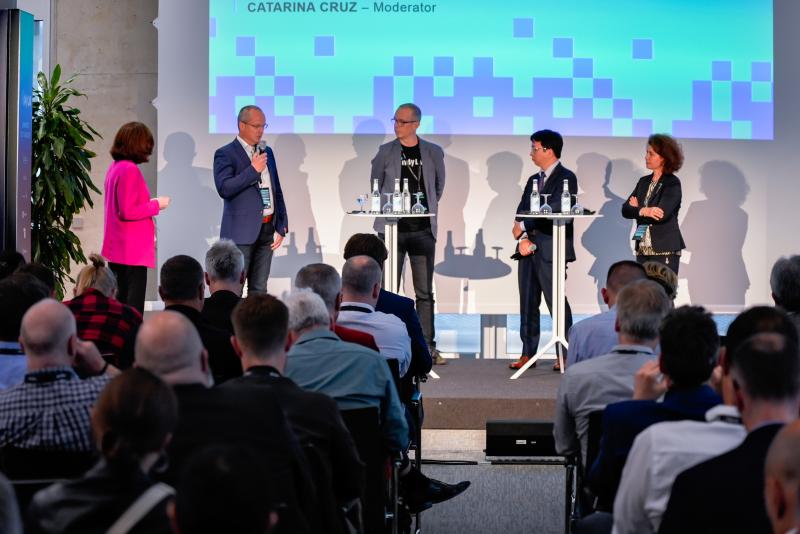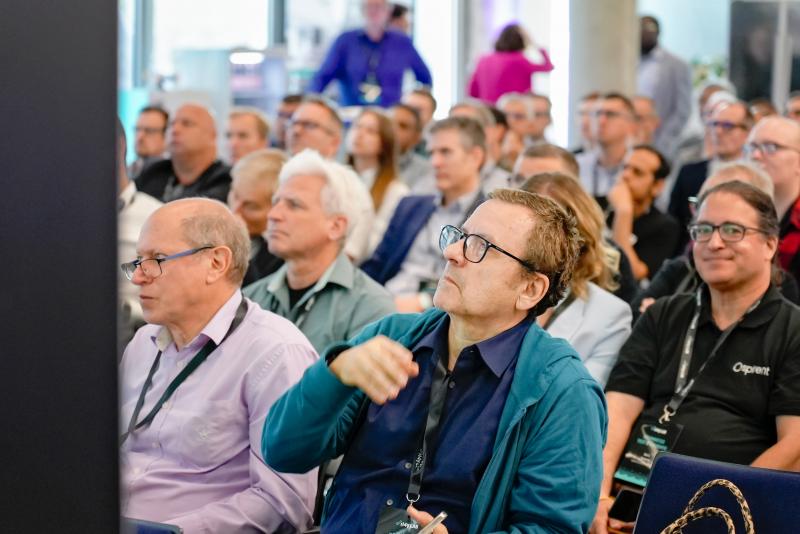“In order to make O-RAN successful, it needs to be consumable for everyone, not only for the big ones. And we all have a certain understanding and a pretty good understanding of what it means and what needs to be done. Smaller operators don't have that as of today. And we need to find ways to make O-RAN consumable also for these guys. Because only then we will scale and only with scale will this whole technology be a success on a global base…Of course to make it consumable, we had it already today, this whole idea of certifying components. 80% are the same for all of us anyhow. Regardless of how much we compete, the base technology is always the same. Then there's always a small piece, if it's not 20%, 30% or 10%, we can discuss. It doesn't matter where we have our special requirements, where we believe this makes us better in front of the customer, but the basics are the same. So why should all of us invest a lot of effort in doing the same basic stuff all the time? That can be done together.” - Franz Seiser | Deutsche Telekom
Operator's Roundtable: Insights from leading MNOs on Open RAN and lab testing
i14y Lab Summit featured an operator’s roundtable focused on what needs to be done to make Open RAN successful and what labs and testing can add to this end. Here is an overview of what was discussed, but you can watch the complete discussion below.

About the Discussion
This year’s i14y Lab Summit featured an operator’s roundtable focused on the insights and perspectives of leading MNOs on Open RAN and lab testing. Franz Seiser from Deutsche Telekom, Shinsuke Sawamukai from NTT Docomo, Aysenur Senyer from Telefónica and Frank Hillebrand from Vodafone offered their perspectives of the Open RAN community and how to move forward as operators in the ecosystem.
As Open RAN continues to evolve, and more tests are being conducted and validated, it’s up to the operators in this scenario to help stimulate and improve the progress moving forward. All of these big players can play a huge part in the industry’s ability to accelerate the whole process and success of Open RAN. There seems to already be a good amount of collaboration present in the community, but as Franz Seiser pointed out:
A push for common testing requirements among the participants in Open RAN was agreed to be the best method among those involved in this discussion to allow for a faster way for everyone to become involved. It’s not a race to the finish line that the community should be aimed at. That is too far away in that scenario. In order to have more vendors in the ecosystem and to scale Open RAN as a whole, there is a required interconnectedness that must come to fruition.
The discussion focused on this need for less competition and more collaboration as the only way to lead the Open RAN initiative to be a success. This goes for vendors just as much as for the operators. There is a need to allow an open dialogue to be had about each and every improvement in the market to create exponential growth that everyone in the Open RAN ecosystem is hoping for. Vodafone representative Frank Hillebrand noted, “I think it's also important that new vendors could come on the train. Not having a huge amount of hardware which can be sold, so if we have new ideas, for example for the RIC, for xApps, rApps ideas to maybe as an example, to reduce energy consumption.” He continued, “Openness is very, very important so that everybody can bring his own ideas and new ideas which we can learn from each other. And not everybody is creating their own history or strategy.”

The widespread adoption of Open RAN relies on the essential aspect of collaboration between labs and operators worldwide. Accelerating the market and fostering collective innovation can be achieved by implementing strategies such as sharing success stories amongst the different players in the Open RAN ecosystem, as well as agreeing on the same testing methodologies for up to 80% of basically the same requirements. This roundtable discussion emphasized what the operators see as the key ways to move O-RAN forward. By focusing on collaboration, and levelling the playing field for smaller vendors to contribute, Open RAN has the opportunity to scale at a level that would benefit all of those involved and drive its widespread adoption.


i14y Lab Newsletter
Subscribe to the i14y Lab newsletter to get your monthly update on what’s going on in the lab, upcoming events, and other network disaggregation news.
